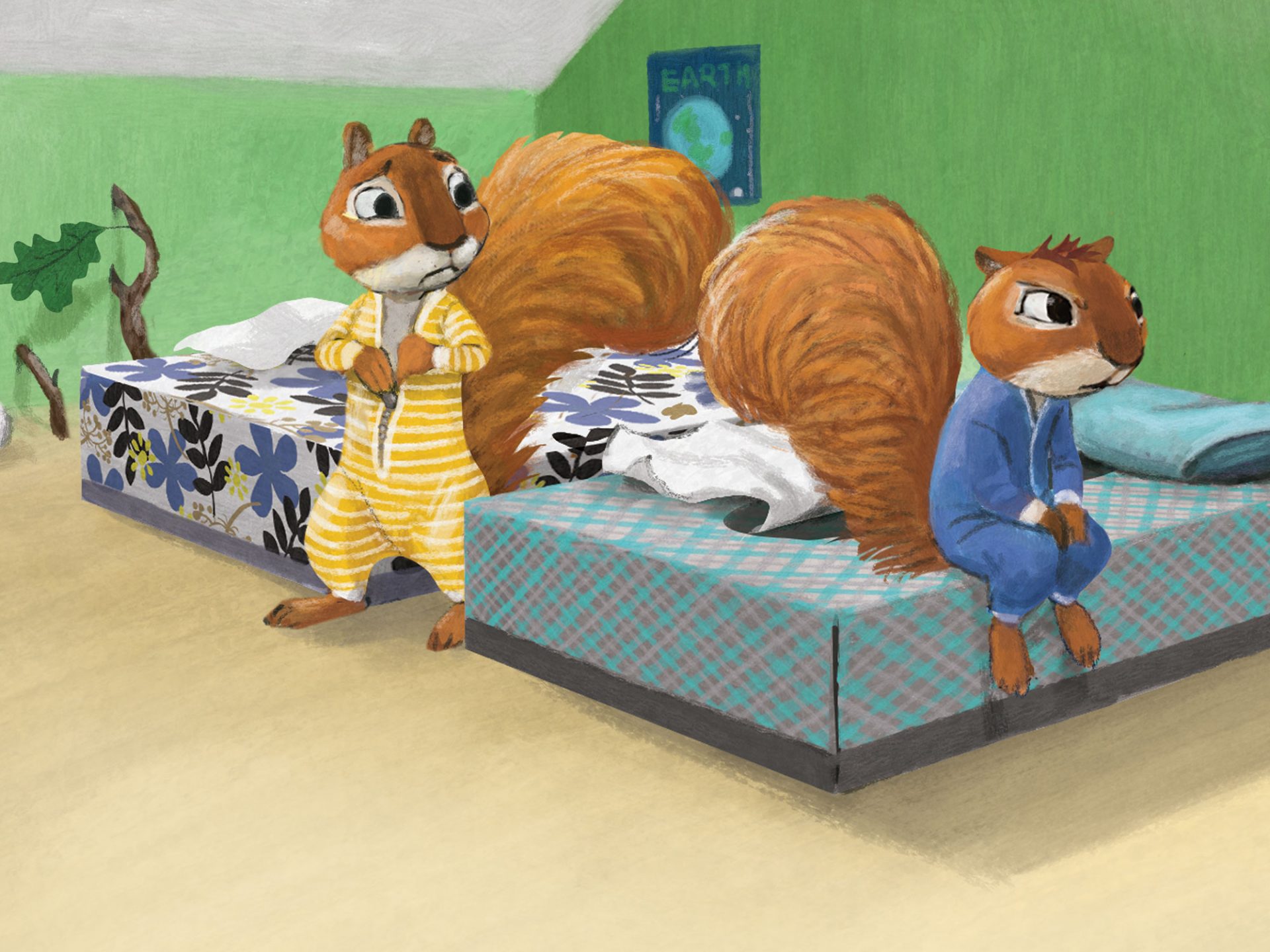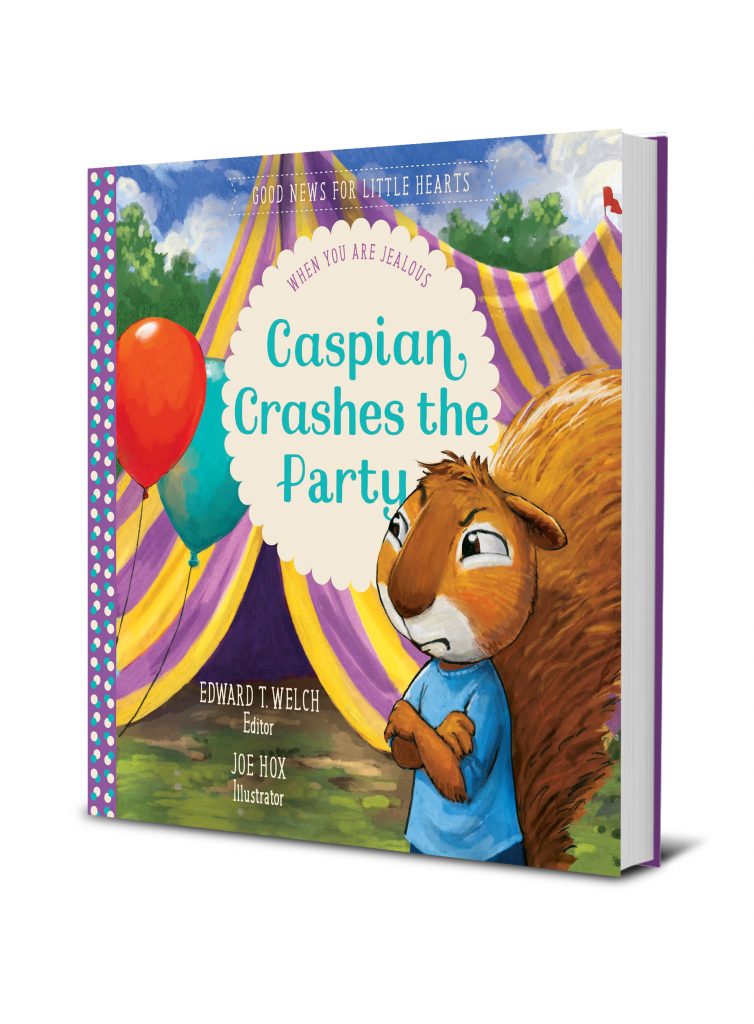Does your child struggle with jealousy from time to time?
The best time to talk with children is when they are not actually jealous. When they are, children don’t listen well, and parents are impatient. But this can be a time when parents and children talk about an experience common to us all. And that conversation is a gift: to talk about something we all struggle with and to talk about it sooner rather than later, so they will have wise ways to take a stand against their jealousy rather than feed it. As you talk with your child, here are biblical truths to keep in mind about jealousy and how to handle it.
1. Jealousy is part of the anger family.
Anger says, “I WANT!” The desire could be a piece of gum, a different outfit, or a later bedtime. Jealousy adds its own twist. Jealousy says, “I WANT what you have! I deserve it. It should be MINE!” This is a particularly dangerous form of anger. An angry child might throw himself or herself on the floor in a tantrum, but a jealous child might throw himself or herself at the other person. Jealousy wants revenge. The Bible places it among the most severe forms of anger: “Wrath is cruel, anger is overwhelming, but who can stand before jealousy?” (Proverbs 27:4). It is even specifically included in the Ten Commandments:
“You shall not covet your neighbor’s house; you shall not covet your neighbor’s wife, or his male servant, or his female servant, or his ox, or his donkey, or anything that is your neighbor’s.”
Exodus 20:17
2. Jealousy is dangerous.
At the beginning it seems somewhat innocent. We want things, and many of those things are fine. We want to be warm when it is cold, dessert after dinner, a new toy, a fun birthday party, attention from those we love—to name just a few desires. The problem is that normal desires can grow into selfish desires. We want MORE, and then we run over anyone who gets in our way. This behavior seems normal in wild animals, but God’s children are designed for something better. Those who trust Jesus can put limits on our desires, we can make love more important than things, and we can love God more than we love anything else.
3. Jealousy has been around from the beginning of history.
Once sin was unleashed, it took just a short time for jealousy to lead to murder (Genesis 4:1–8). Cain was jealous the Lord accepted his brother’s sacrifice but rejected his own. Cain most likely knew the kind of sacrifice that pleased the Lord, but he chose his own method of sacrifice rather than the Lord’s. The result? He wanted what was not his. He wanted the acceptance that was his brother’s. The well-known story of Joseph and his brothers has jealousy at the heart of it. “And the patriarchs, jealous of Joseph, sold him into Egypt” (Acts 7:9). His brothers’ pride could not tolerate the idea that Joseph would have a more important position than they, so they got rid of him (see Genesis 37:9–11). Jealousy is everywhere, and it is serious.
4. Start with more stories.
We recommend Caspian Crashes the Party from the Good News for Little Hearts series. Can you think of others? You could ask your child for a story, and you could also share one from your own life. Then read or retell the story of Cain and Abel or the story of Joseph and his brothers. When you and your child can come up with jealousy stories, it means you are ready to look at jealousy more closely. Here are just a few starter questions: Ask your child questions about the stories. What happened? Why was __________ so angry? What did he or she do when mad? How did that turn out?

5. Consider what jealousy says about our hearts.
“But I want it; I deserve it!” is a common defense that children give for jealousy. Maybe your child wanted a birthday party that was better than his brother’s, and his own party, he thought, had fallen short. You might think that would leave him sad, but instead of sad, he became mad. Why was he so mad? We are mad or jealous when nothing is more important than what we want. Nothing. Not a brother. Not a parent. Not God.
And if we can’t have what we want, then we don’t want other people to have it either. The problem is we want something too much. A good name for those selfish desires is the “I wantsies.” When we are gripped by the “I wantsies,” we act like murderers (James 4:2). Jealousy means a war is within us. We know we should love other people, but sometimes we only love ourselves and don’t care how mean we are.
6. Speak to Jesus about your jealousy.
It starts with simply praying, “Jesus help me.” That’s when we begin to change. It seems like such a small step, but it is the most important and the hardest one, or at least the step we forget most often. When we ask for help, Jesus is always pleased to help us. The simple prayer, “Jesus help me” might be enough for now. One more step? “Jesus, forgive me for being so selfish and not loving others.” Here is the great thing about talking with Jesus: When you ask him for help, he gives it. He gives us his power so we can love God and others.
The apostle Paul wrote, “I can do all this through the power of Christ. His love gives me strength” (Philippians 4:13). Teach your child to ask for Jesus’s strength when he or she feels angry and jealous. If you want to go a little further you could think about what help children need. For example, children need help to be sad rather than mad, to talk to parents about their jealousy before they hurt others, to love others more than they love a toy or a present, to love God more than a toy or a present, and to listen to what Jesus says.
7. Listen to Jesus.
We might not realize it, but we were listening to Jesus when we asked for help. And once we start listening, we can hear much more. What we hear is that Jesus gave us the best gift because Jesus loves us. He loves us when we are kind and even when we are jealous. Most children know a toy or another person’s party can seem like the most important thing in the world, but by tomorrow it will be forgotten and what will matter is that their parents love them. What matters even more is that Jesus loves them. Wise people, such as the person who wrote Psalm 63, know this truth:
“Your steadfast love is better than life.”
Psalm 63:3
8. Learn to be content.
Here is the secret that the apostle Paul learned, and he wants us to learn it too (Philippians 4:12). Paul knew we do not need more things in order to be content. Content is what you might feel after you just had an ice cream cone. Even if you see other friends with ice cream, you don’t have to have their ice cream to be happy. You have enjoyed your ice cream and are satisfied. Content is when your friends receive a great gift, which you too might want, yet you are happy they received it.
How do you get this contentment? You are satisfied because you have received the love of Jesus along with everything that belongs to him. He calls you his friend. You are satisfied because you love Jesus, and he is more important to you than more things. And you are satisfied because Jesus has helped you to love other people and, when you love someone, you want what is best for him or her. We all learn to be content when we know we are forgiven and loved, when we love God more than we love anything else, and when we love others. God created us in such a way that things will never make us content. They will only make us want more things. We are made to be content as we rest in him.
The above content was adapted from Caspian Crashes the Party: When You Jealous.
CASPIAN CRASHES THE PARTY: WHEN YOU ARE JEALOUS
Caspian’s brother, Jax, is having a birthday party, and Caspian is jealous of all the attention and presents Jax is getting. One thing leads to another until Caspian crashes into the tent his parents set up for Jax’s birthday, bringing the whole party down with him.






